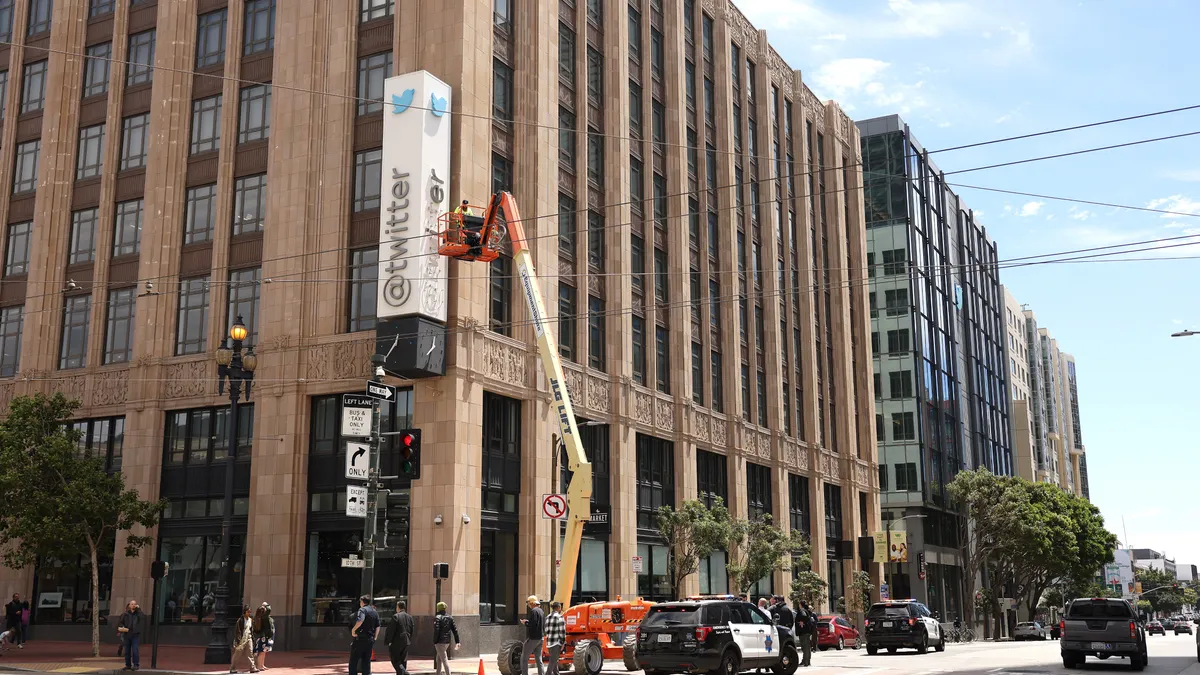The National Labor Relations Board has joined the Biden administration’s efforts to curtail employers’ practice of having workers sign noncompete agreements.
Amid a pending Federal Trade Commission proposal to ban such agreements, the NLRB’s general counsel issued a memo Tuesday stating that the proffer, maintenance, and enforcement of broad noncompete provisions in employment contracts violate the law except in limited circumstances.
NLRB GC Jennifer Abruzzo wrote that noncompetes can prevent employees from lawfully exercising their rights under Section 7 of the National Labor Relations Act.
“Non-compete provisions reasonably tend to chill employees in the exercise of Section 7 rights when the provisions could reasonably be construed by employees to deny them the ability to quit or change jobs by cutting off their access to other employment opportunities that they are qualified for based on their experience, aptitudes, and preferences as to type and location of work,” Abruzzo said in a prepared statement.
The general counsel’s memo comes just a few months after the NLRB issued a decision declaring that certain provisions in severance agreements violate the law when they restrict employees’ rights under the law.
Abruzzo noted that her newly issued guidance also applies to the noncompete provisions in severance agreements.
Special circumstances
Nearly one in five U.S. workers are covered by noncompetes, according to an FTC fact sheet.
Abruzzo’s memo said for a noncompete provision to be lawful, it would need to be “narrowly tailored to special circumstances justifying the infringement on employee rights.”
An employer’s desire to avoid competition from a former employee is not a legitimate business interest that would support a special circumstances defense, the GC wrote.
She also said business interests in retaining employees or protecting special investments in training employees were unlikely to justify overbroad noncompete provisions, as employers could protect training investments by less-restrictive means.
“I note that employers’ legitimate business interest in protecting proprietary or trade secret information can be addressed by narrowly tailored workplace agreements that protect those interests,” Abruzzo wrote.
Additionally, she said other examples of noncompete agreements that may not violate the law could be “provisions that clearly restrict only individuals’ managerial or ownership interests in a competing business, or true independent-contractor relationships.”
Caveats for employers
Abruzzo’s memo applies to union and nonunion employers alike, as both are subject to the National Labor Relations Act.
However, lawyers have noted that Section 7 of the NLRA does not cover supervisors and managers, so noncompetes with those types of employees should not be impacted by the GC’s guidance.
“These are the folks with non-competes against whom companies often want to enforce non-competes,” FisherBroyles Partner Eric Meyer wrote in a blog post.
He also highlighted that the NLRB GC seemed to provide support for employers using non-solicitation agreements and trade-secret protections.
“So businesses can protect themselves from unfair competition, subject to state law, with other restrictive covenants beyond non-competes,” Meyer wrote.
Both Meyer and attorneys from Proskauer Rose emphasized that the NLRB itself had not yet ruled on the general counsel’s theory about noncompetes.
“But, given this very public announcement, employers relying on non-compete agreements can expect a slew of unfair labor practices challenging the agreements,” the Proskauer lawyers wrote in a blog post.
As a result, employers may want to closely review their noncompete agreements with lower- and middle-level employees and determine whether their objectives can be accomplished through other types of contracts.
Whole of government approach
The press release about Abruzzo’s memo mentioned the NLRB had previously entered into memoranda of understanding with the FTC and the U.S. Department of Justice’s Antitrust Division, both of which “have addressed the anticompetitive effects of non-compete agreements.”
“This MOU is critical to advancing a whole of government approach to combating unlawful conduct that harms workers,” Abruzzo said when the collaboration with the FTC was announced last year.
The FTC’s proposal to ban noncompetes remains pending as the agency reviews thousands of comments it received this spring.
Even without a ban in place, the FTC has taken several enforcement actions against companies who have had lower-level employees sign noncompete agreements.
Meanwhile, Abruzzo said that in a recent case, she had authorized the issuance of a NLRB complaint alleging unlawful maintenance of an overbroad noncompete provision to which the employer had subjected low-wage employees.
In response to the NLRB GC’s memo, a U.S. Chamber of Commerce leader issued a statement Wednesday in which the organization vowed to “utilize all available tools to fight this extreme and blatantly unlawful overreach.”



















